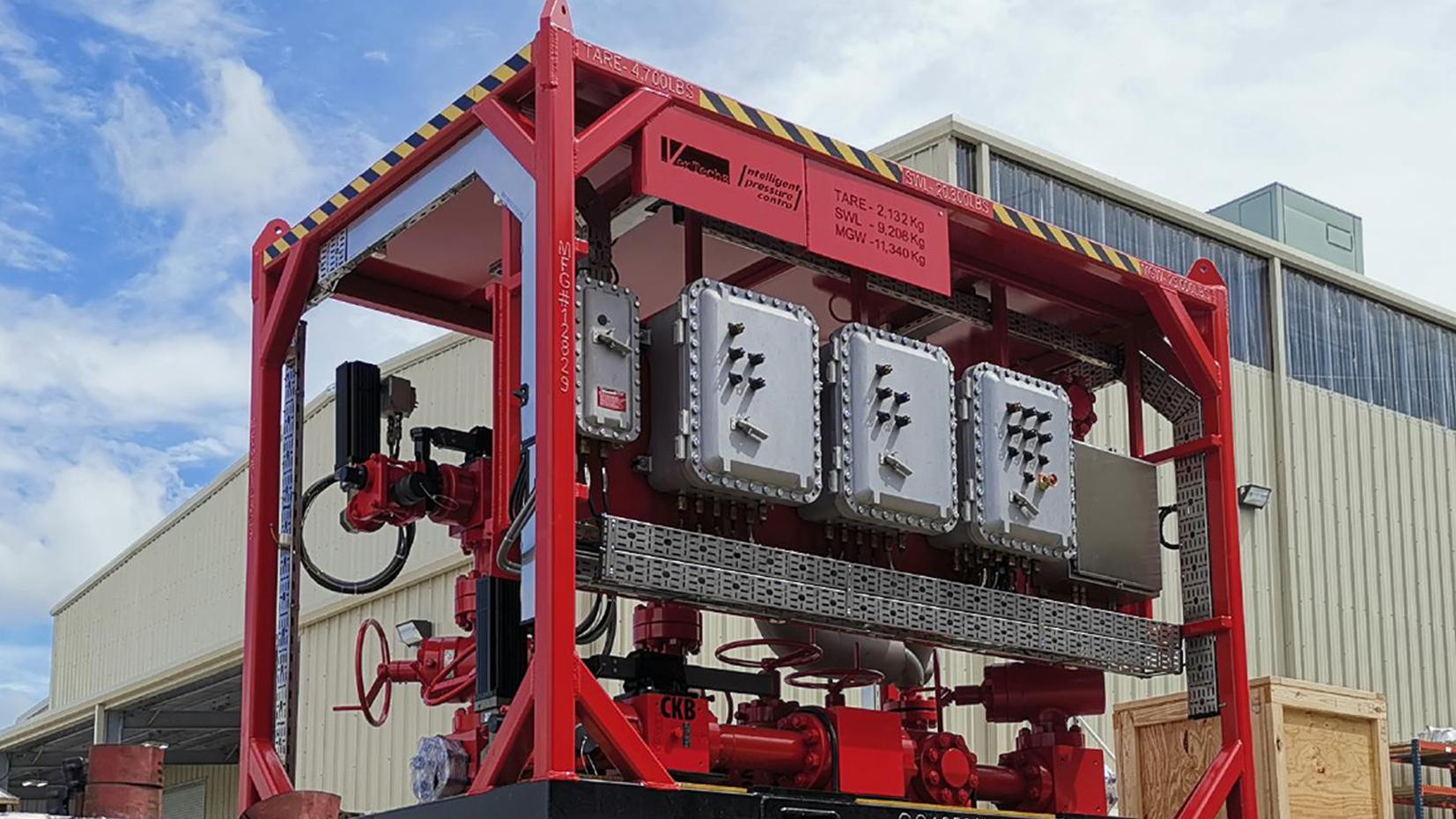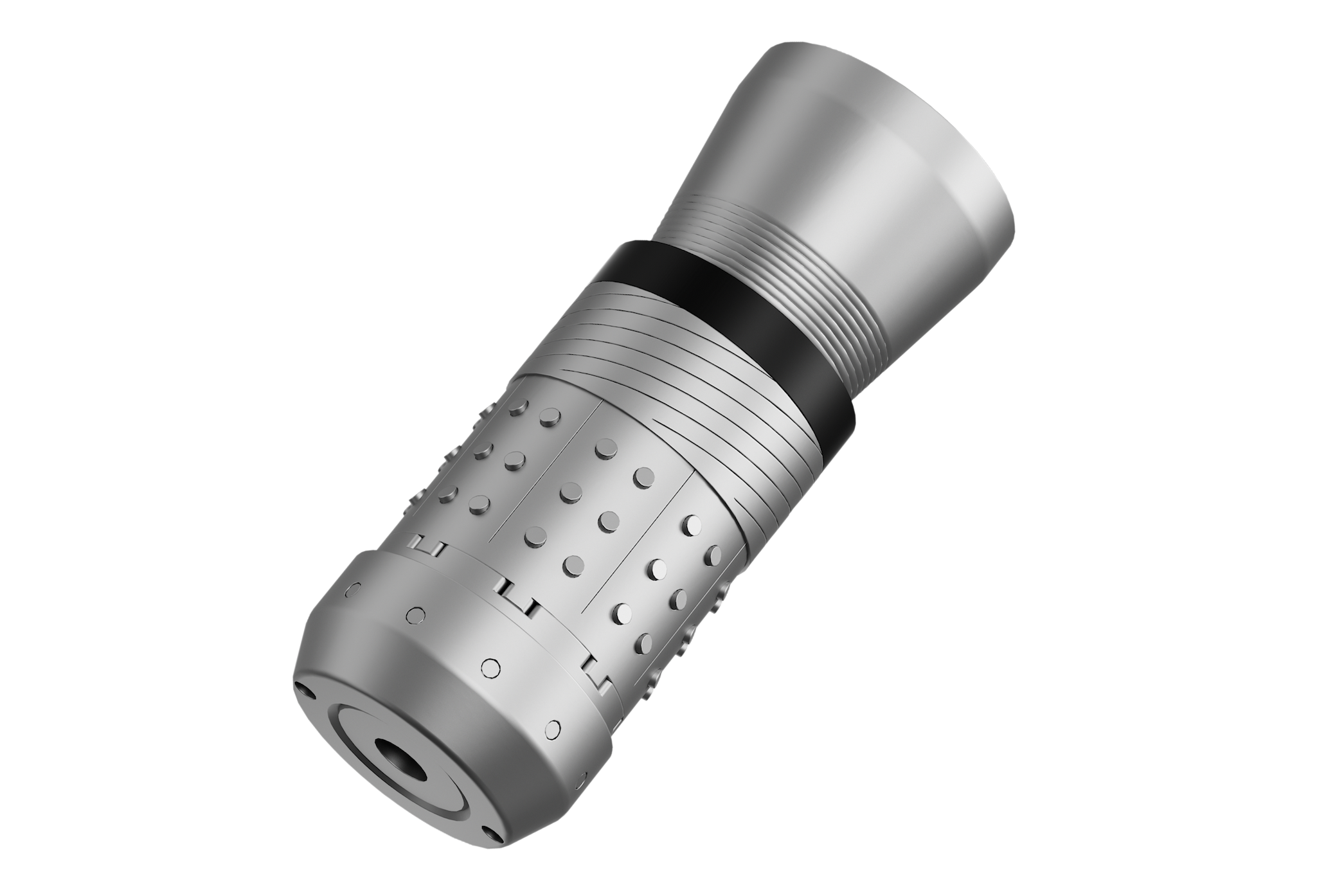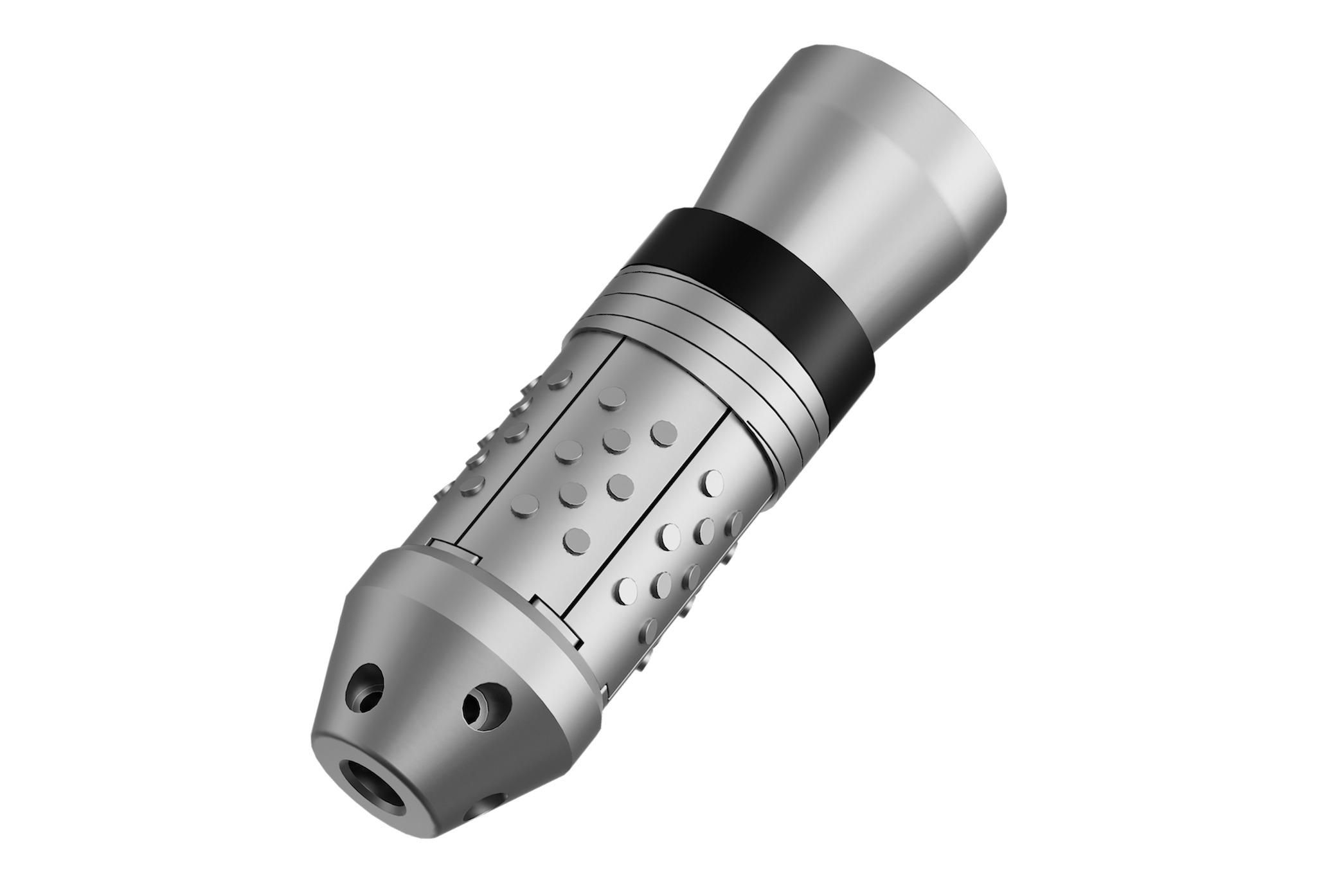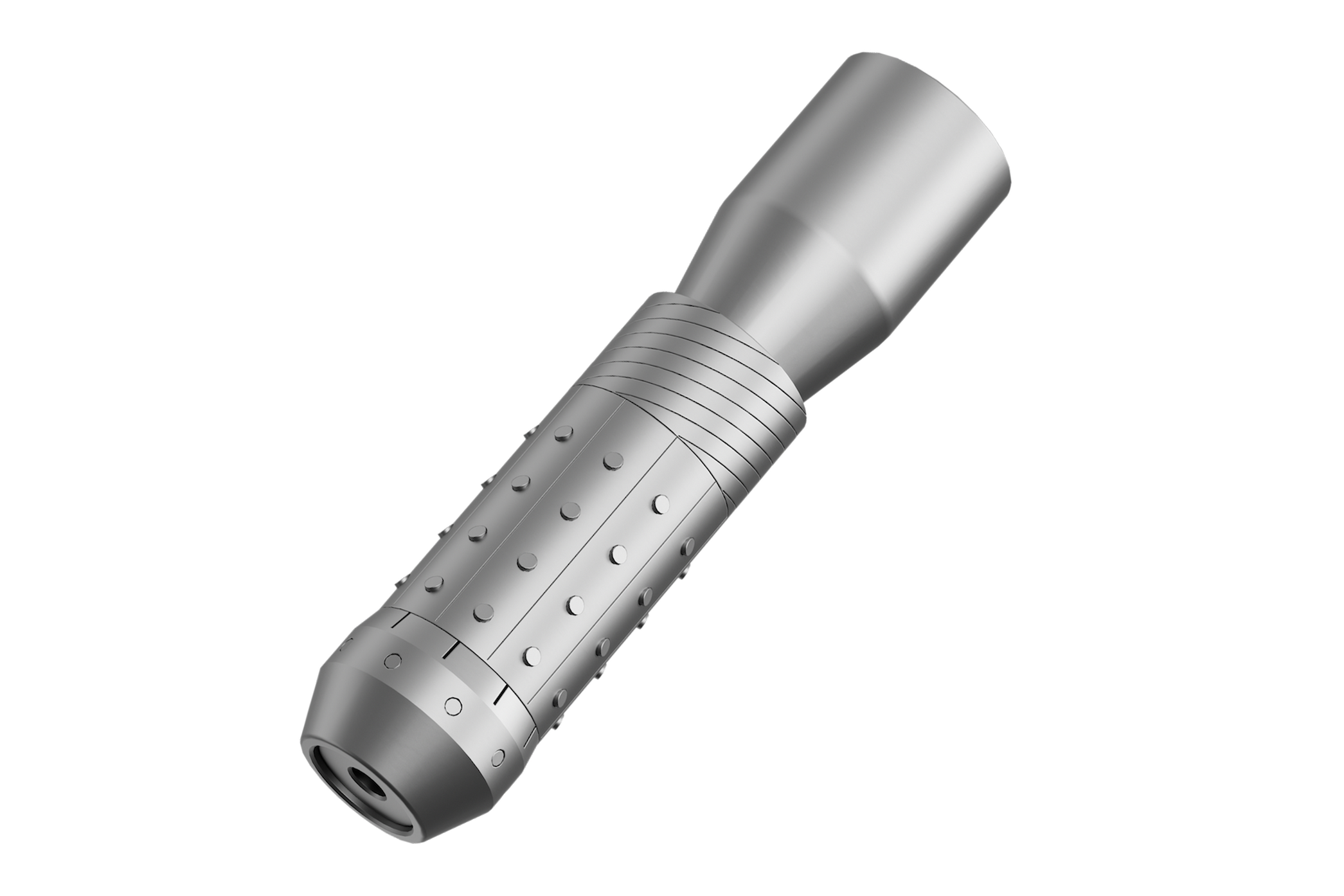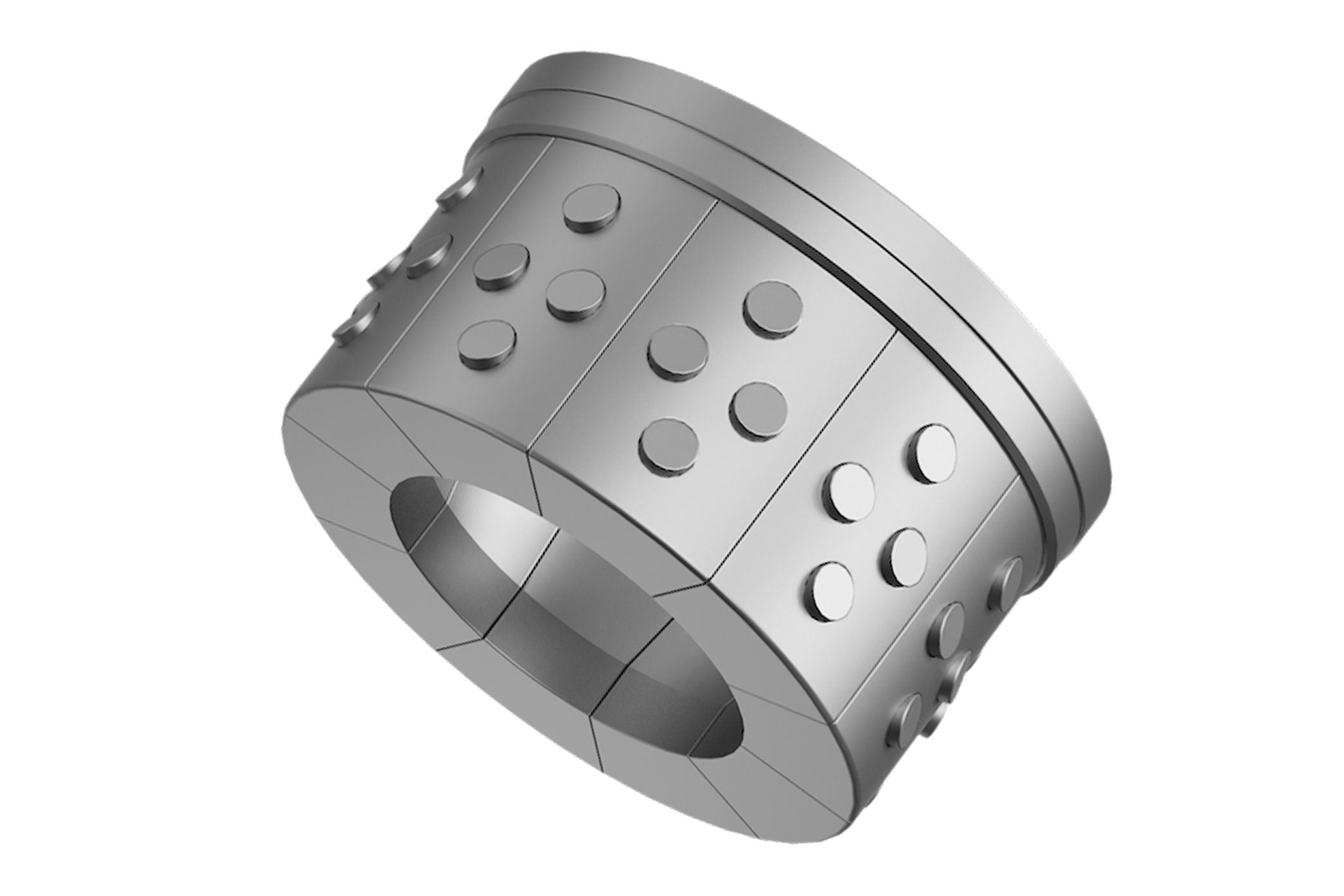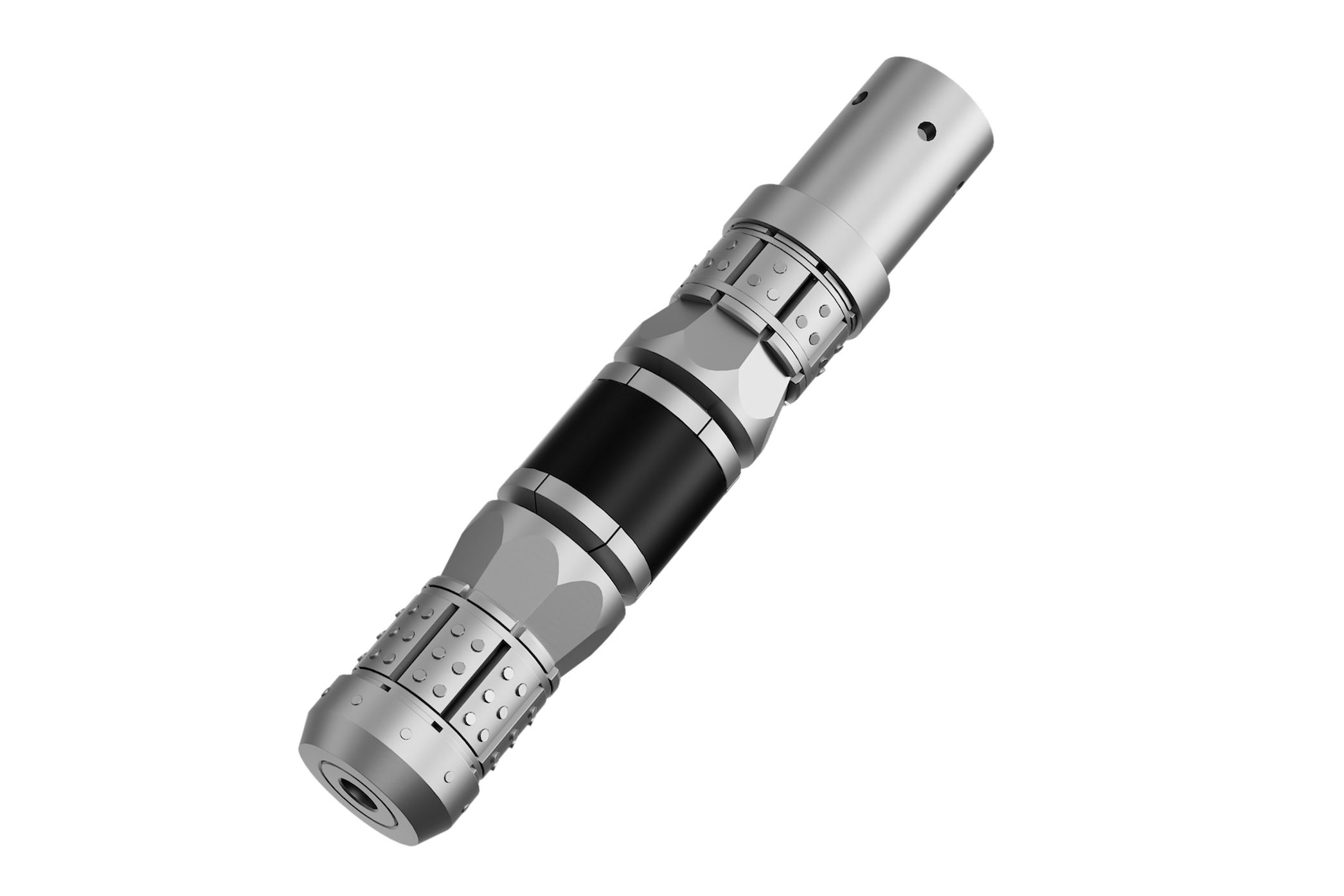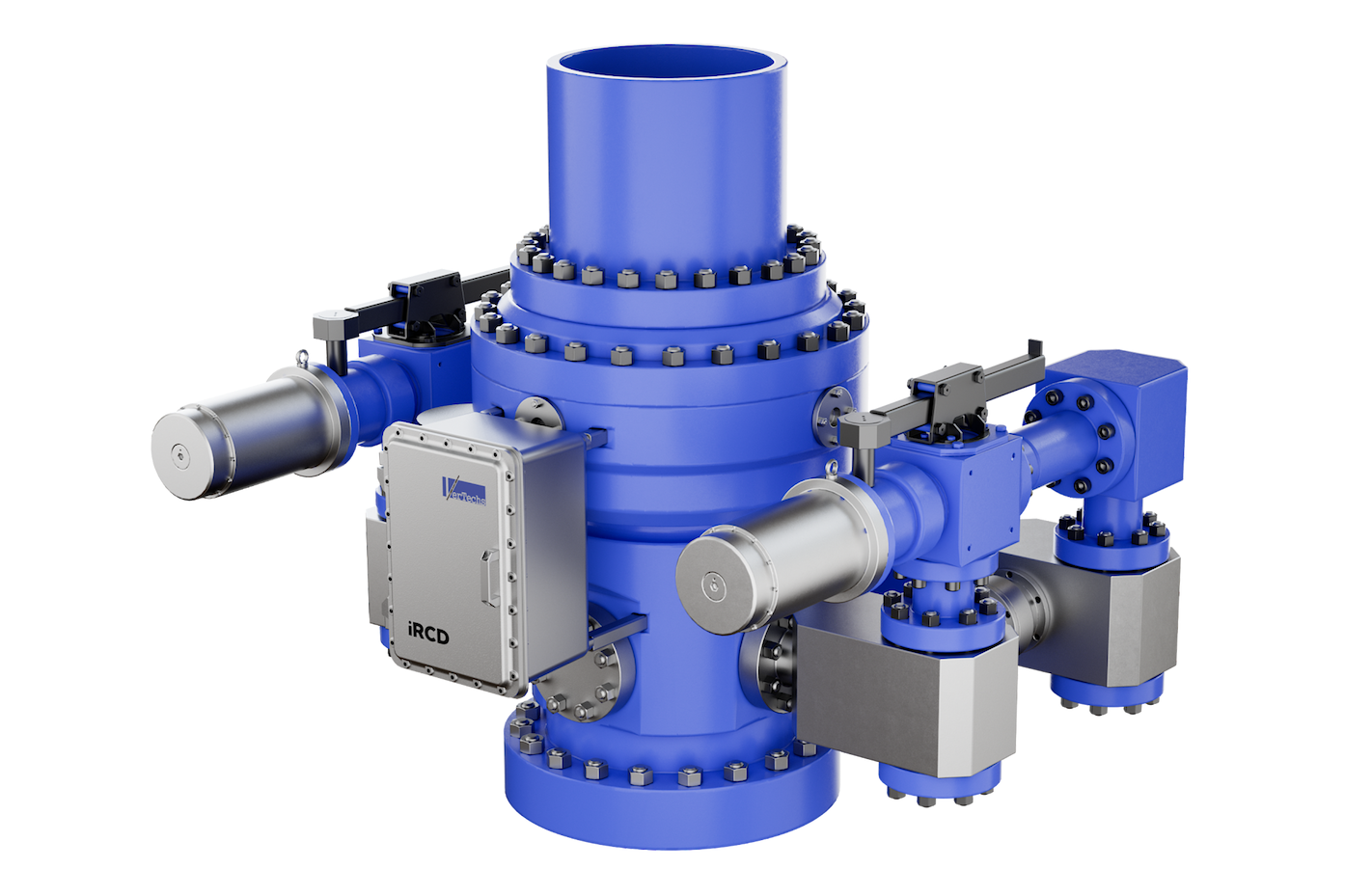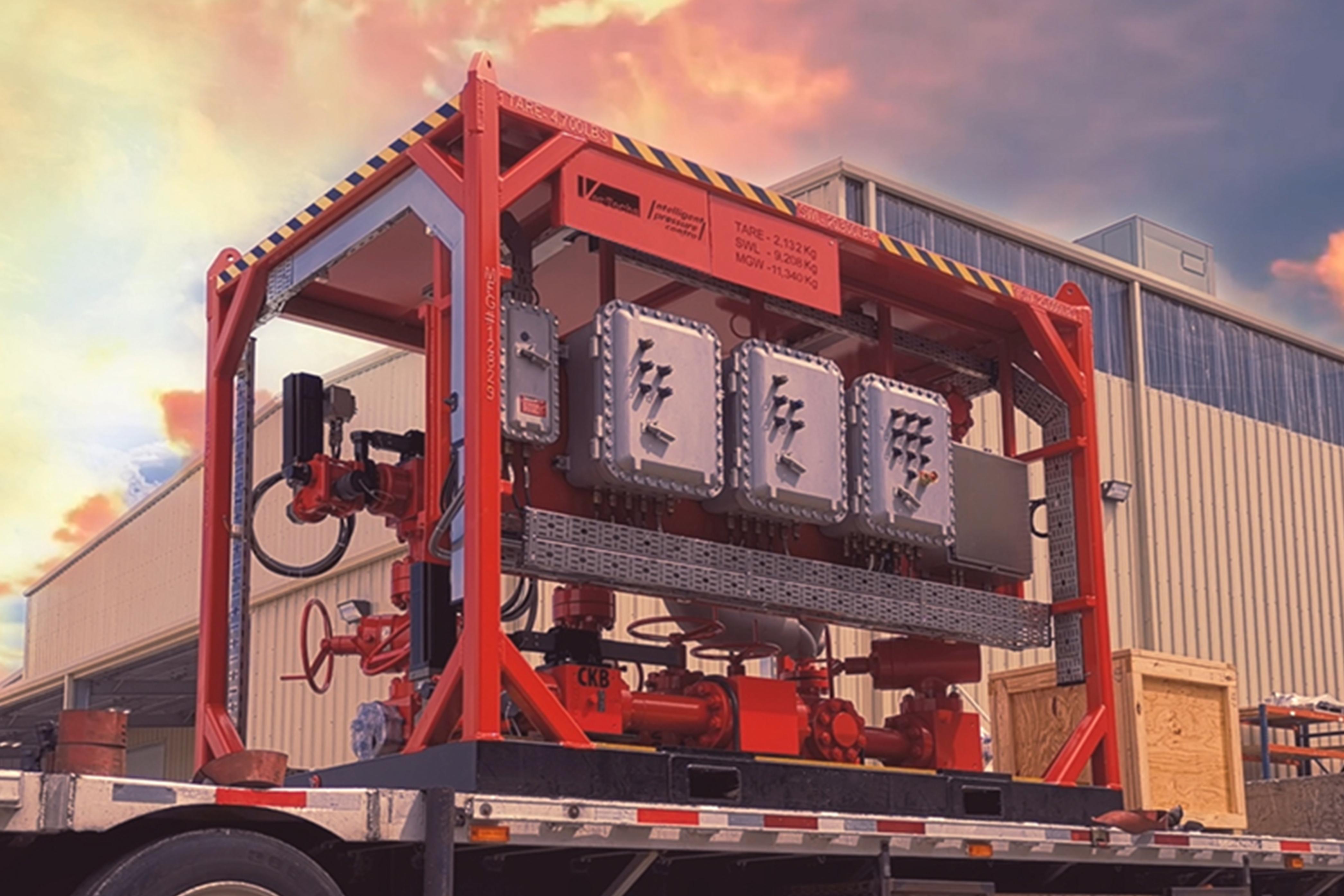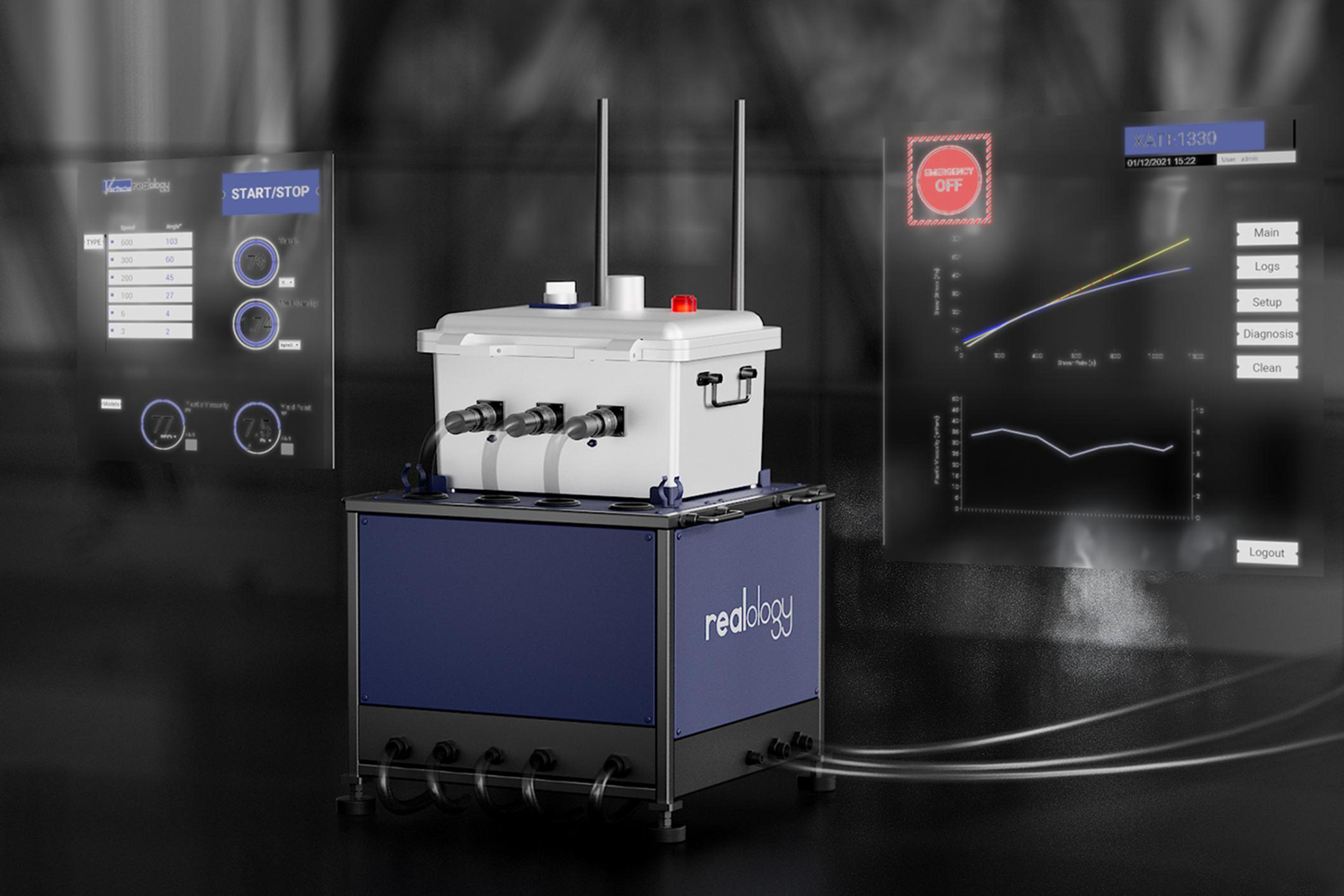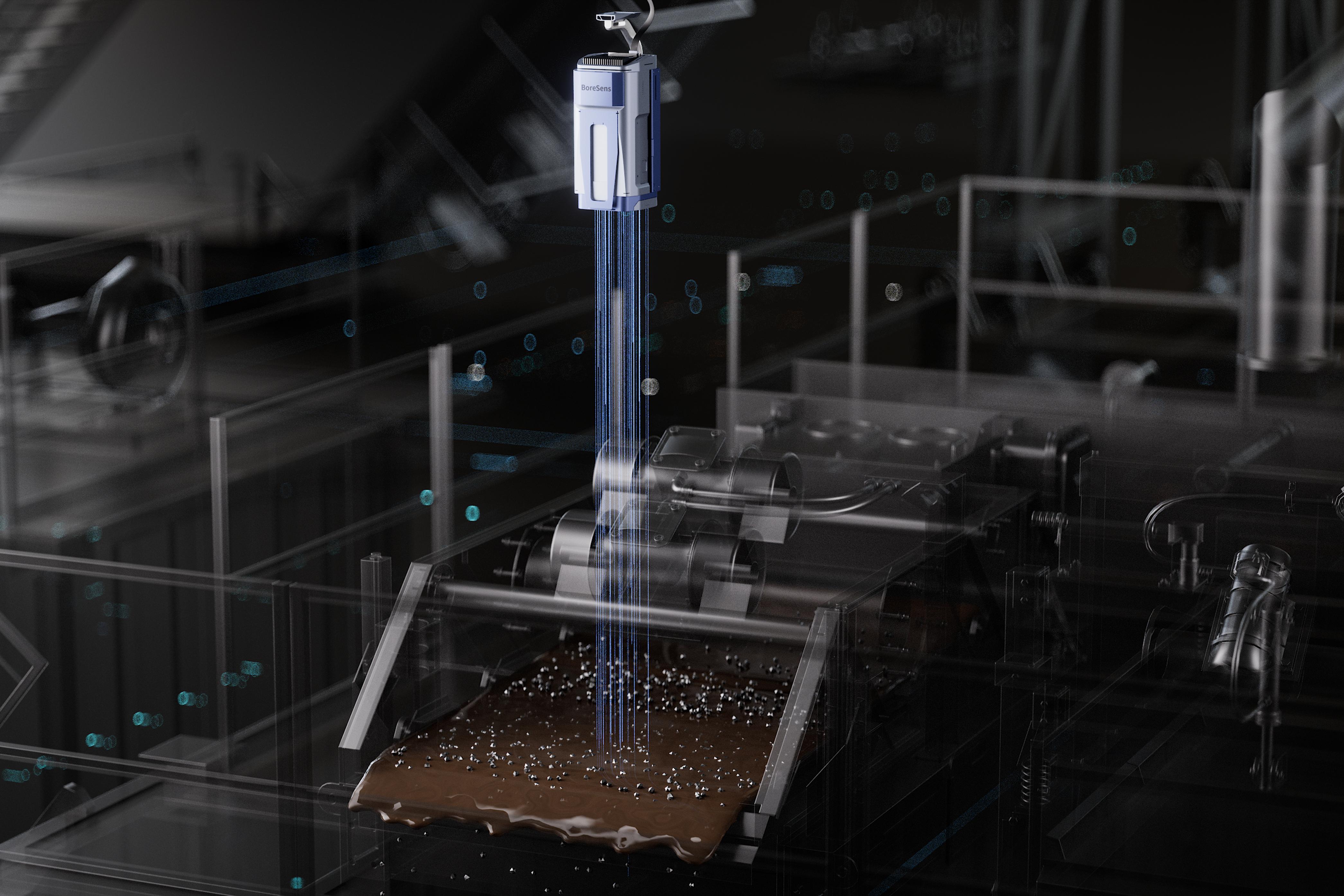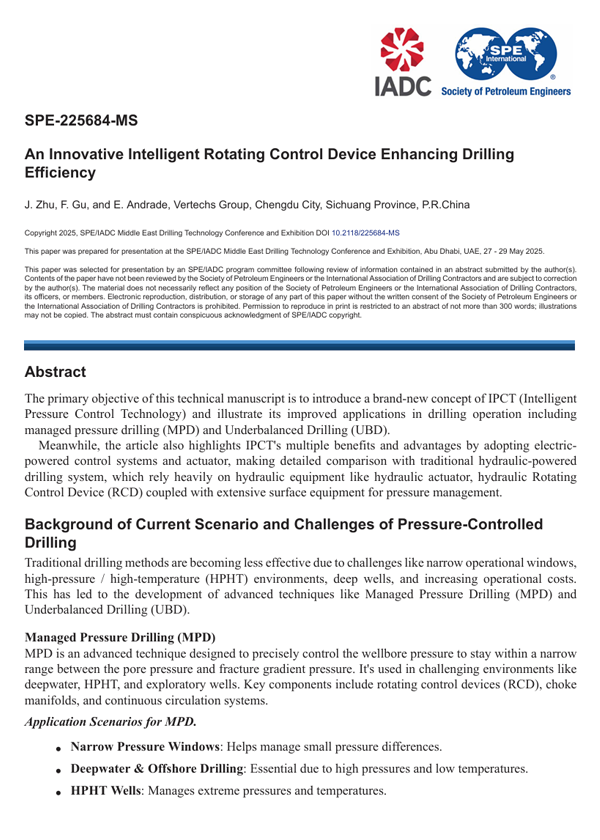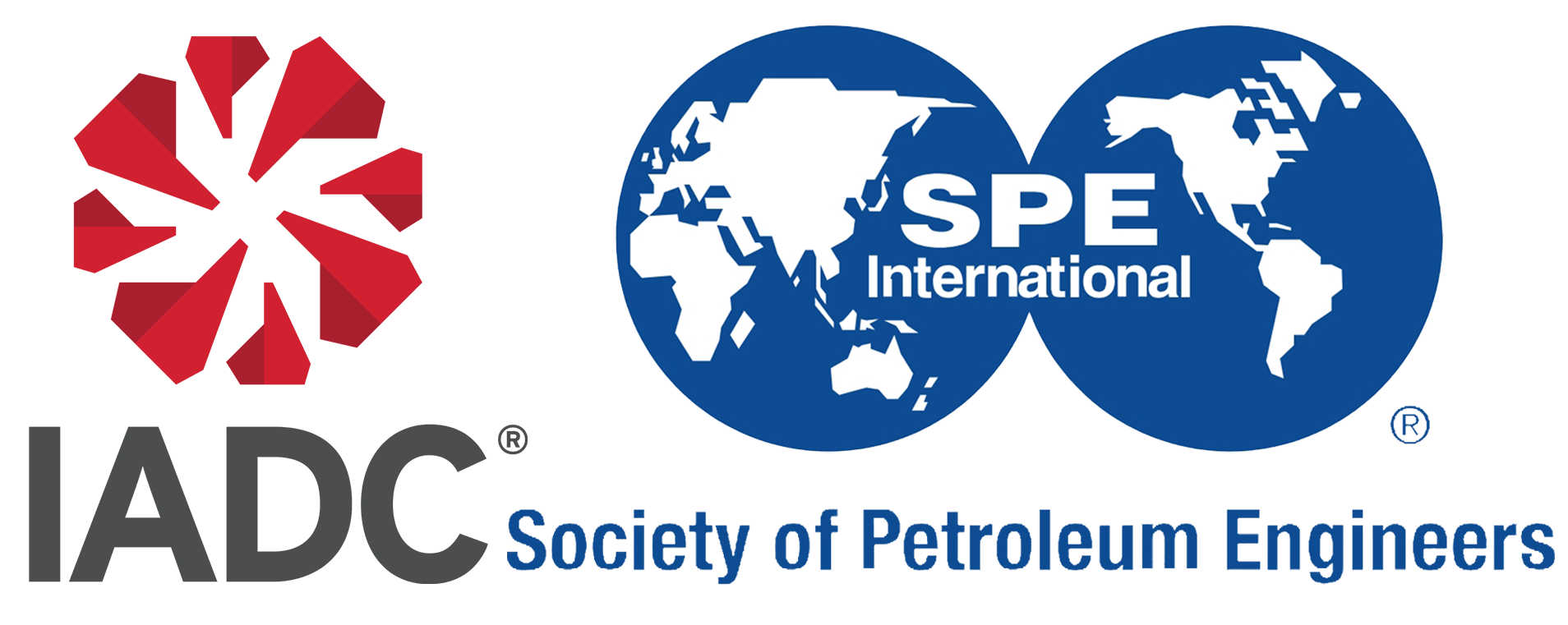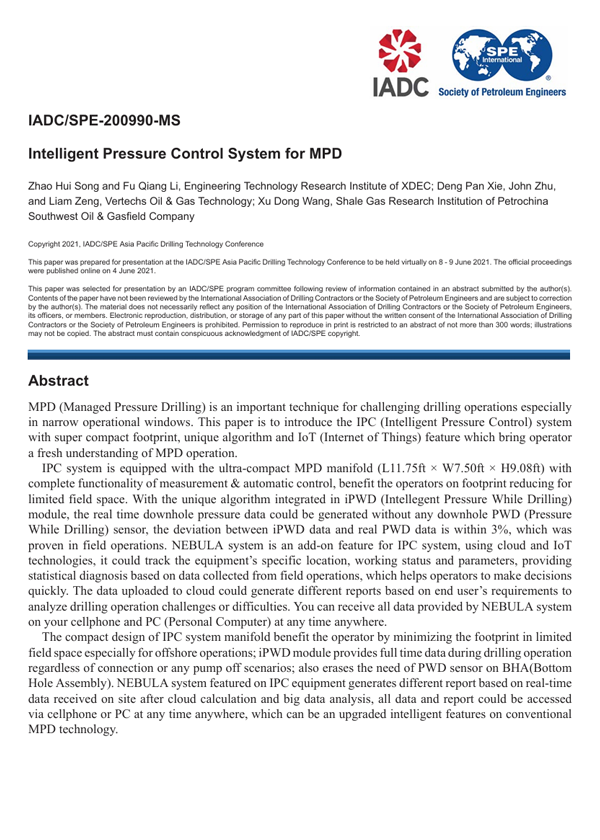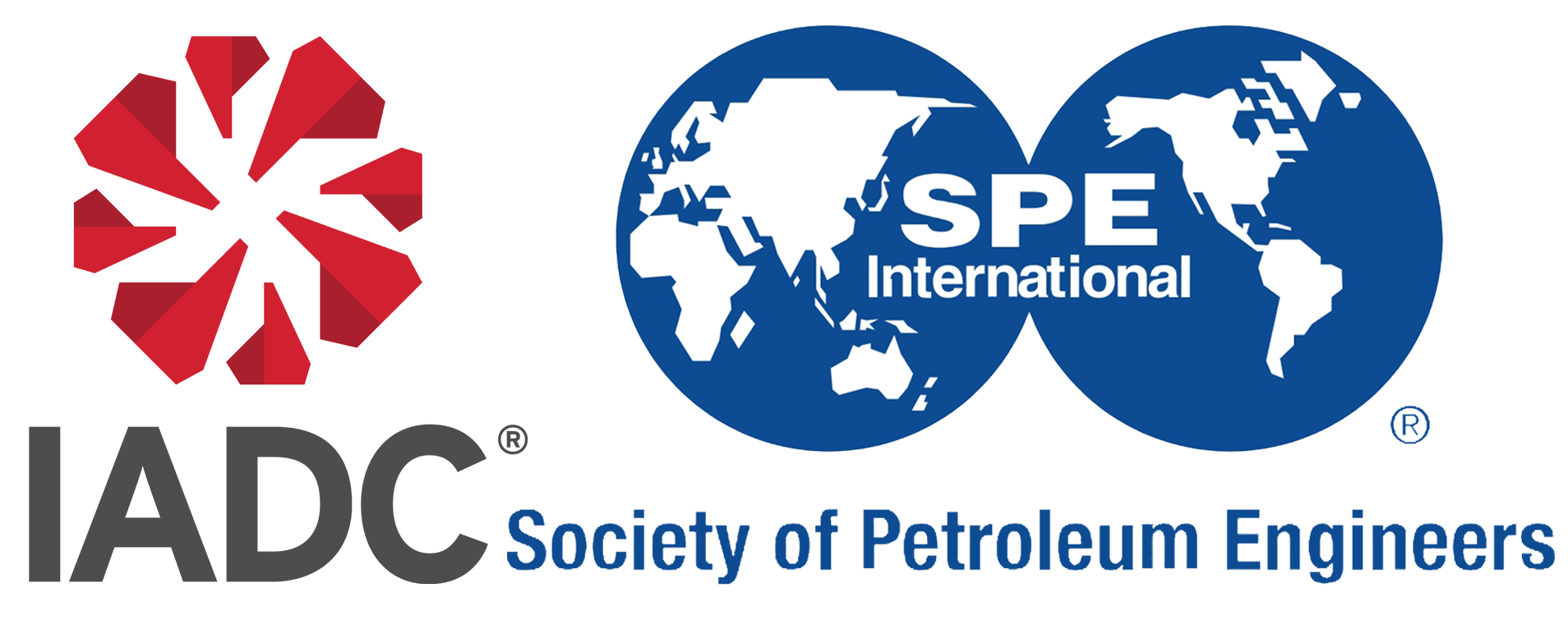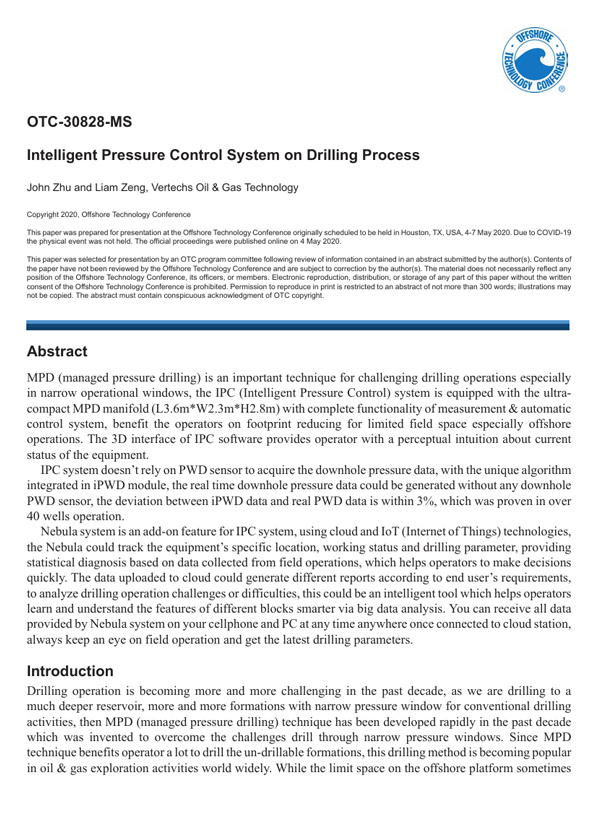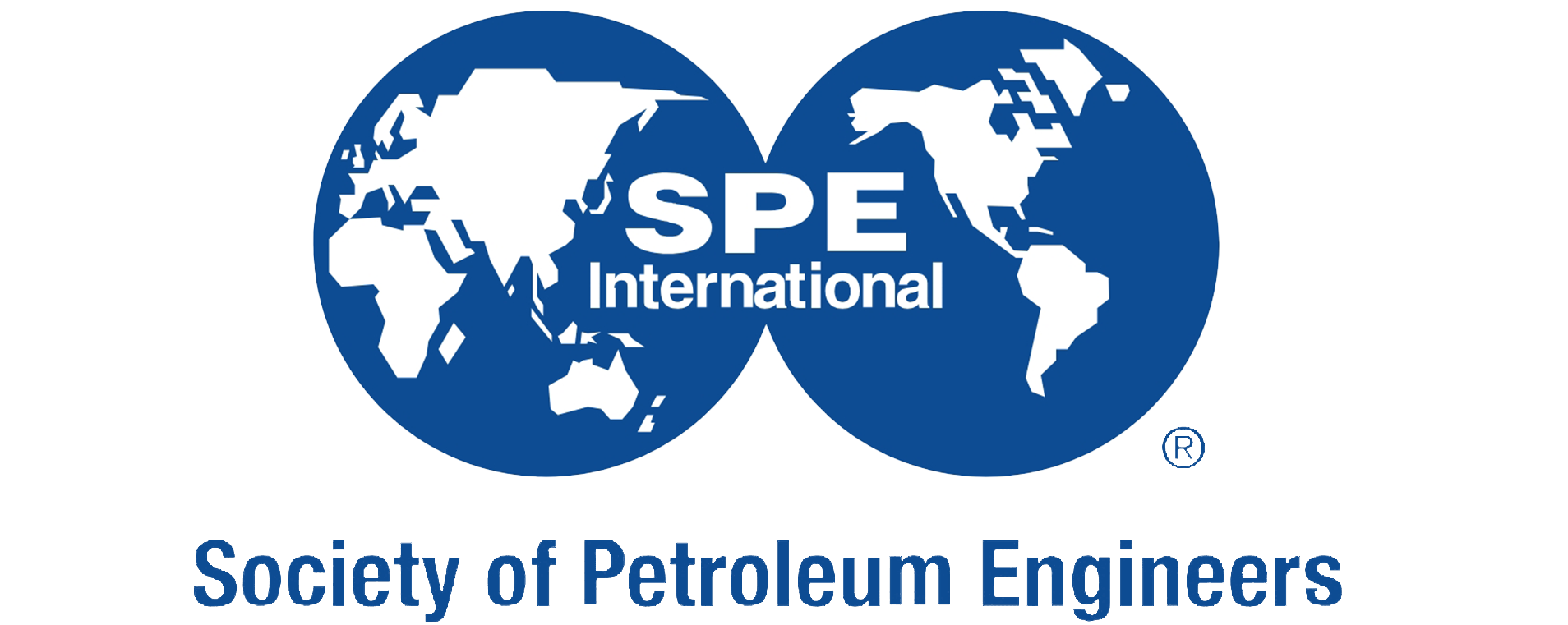Vertechs IPC-MPD system features a high-precision manifold equipped with electric chokes, delivering a rapid and stable response to pressure fluctuations during managed pressure drilling. With enhanced actuation accuracy and millisecond-level responsiveness, the system significantly improves pressure control performance and overall drilling efficiency. A key advantage of the electric choke design is its compact form factor, which reduces the manifold footprint by up to 60% compared to traditional hydraulic systems. This streamlined setup allows for more efficient space utilization and easier field deployment. Designed for complex and variable well conditions, the system leverages IPC (Intelligent Pressure Control) principles with an AI and neural network algorithm that replaces conventional model-based control. It dynamically adjusts to real-time downhole changes, fluid properties and pressure variations, ensuring consistent and reliable control throughout MPD operations.
Features
-
Intelligent Pressure Control:The Intelligent Pressure Control engine uses AI and neural network algorithms to optimize control autonomously, ideal for complex systems.
-
Control Algorithm Support for Various MPD Conditions:Equipped with intelligent multi-parameter control algorithms like SBP, SPP, MFC to meet MPD precise control requirements
Specification
| Design & Manufacture Standard | API 16C | Actuator | Electric DC/AC Explosion-proof |
| Pressure Rating | 5,000 psi | Pressure Control Precision | ±15 psi |
| Connection Size | 4 1/16 in | Orifice Size | 3 in / 2 in |
Case Study
-
Case Study 1: MPD and Workover in an Ultra-Deep Oil Well with Slimhole
OVERVIEW
Operation Time: May – July 2024
Operation Area: Northwest China
Reservoir Type: Oil Well (Ultra-Deep, Slimhole)
Mud Density: 2.16 – 2.20 g/cm³ (18.02 – 18.36 ppg)
Mud Type: OBM
ECD Window: <0.05 g/cm³ (<0.42 ppg)
Casing Runs: 1 (6 in)
Well Depth: 6,260m – 8,100m (20,541 ft – 26,575 ft)
Applied in: MPD, Workover
RESULTS
Completion of MPD and well intervention operations in an ultra-deep well exceeding 8,000m (26,247 ft)
Simulation of the wellbore pressure window through real-time and high-precision hydraulic modeling enabled precise pressure control during both circulation (drilling) and non-circulation phases (tripping and connections) to meet formation pressure requirements
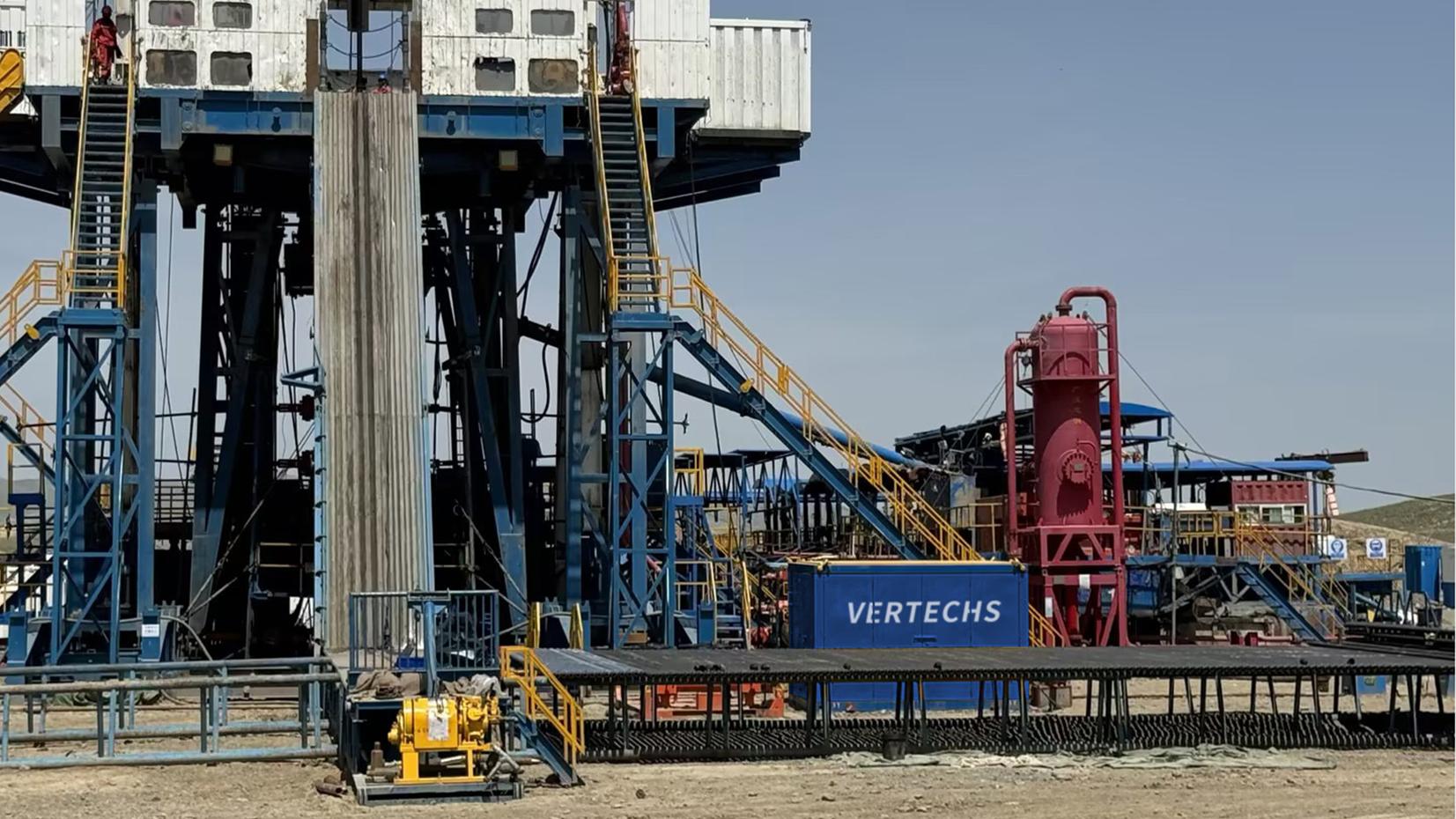
-
Case Study 2: MPD and Cementing in a High-Pressure, High-Production Gas Well
OVERVIEW
Operation Time: April – October 2023
Operation Area: Southwest China
Reservoir Type: Gas Well (High-Pressure, High-Production)
Mud Density: 2.12 – 2.25 g/cm³ (17.70 – 18.77 ppg)
Mud Type: OBM
ECD Window: <0.1g /cm³ (<0.83 ppg)
Casing Runs: 2 (8 1/2 in, 6 in)
Well Depth: 3,410m – 5,072m (11,190 ft – 16,632 ft)
Applied in: MPD, Cementing
RESULTS
Ensured safe operations in the high-pressure gas well
Successfully resolved more than 8 downhole kicks and loss events across 2 sections
Achieved 9 days of constant bottomhole pressure circulating operations during 14 gas discharge operations, reducing NPT and shortening the well completion cycle
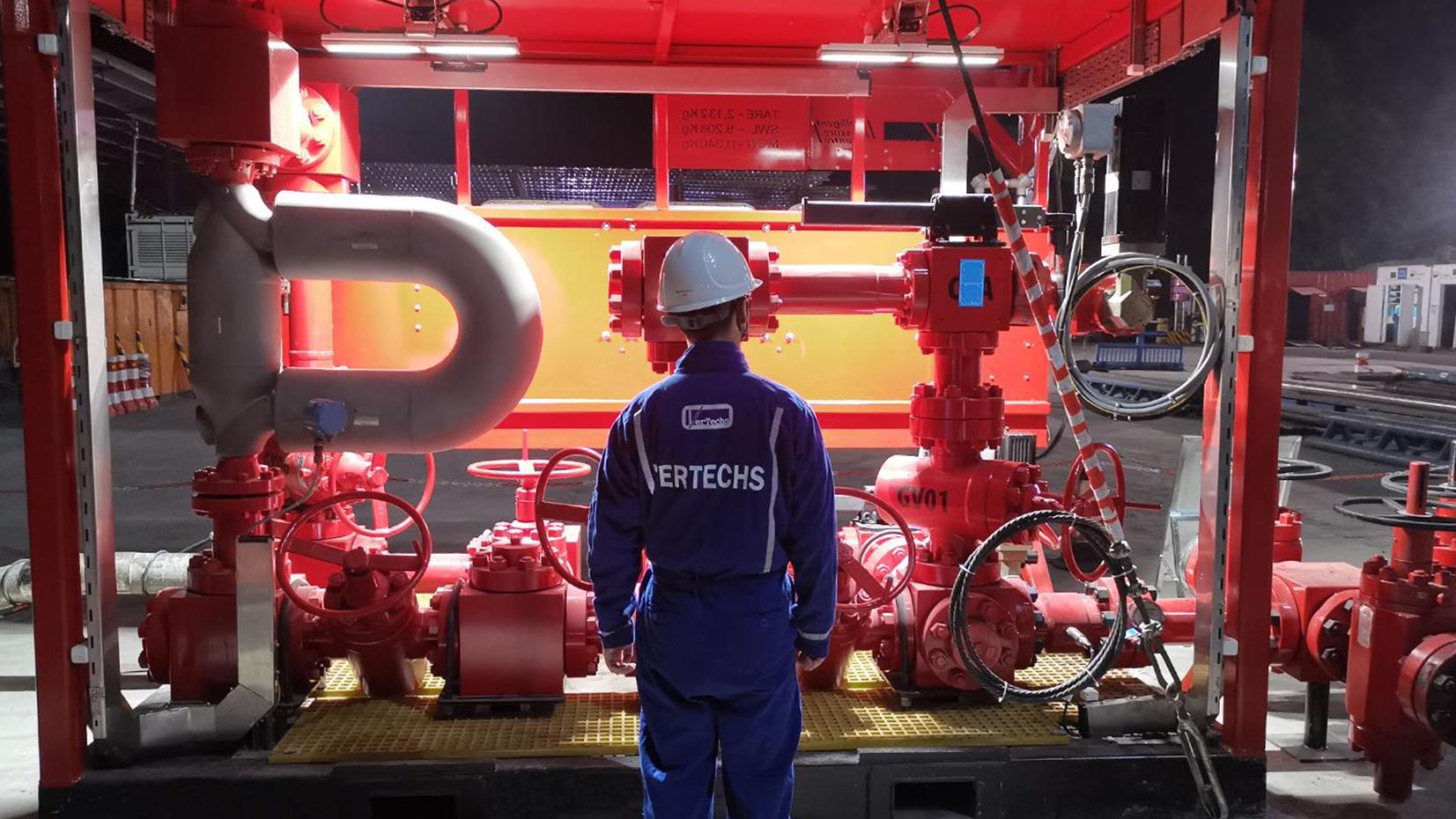
-
Case Study 3: MPD and Cementing in a Gas Well in a Fractured Reservoir with High H₂S
OVERVIEW
Operation Time: February – July 2021
Operation Area: Southwest China
Reservoir Type: Gas Well in a Fractured Reservoir (High H2S)
H2S Content: >30,000 ppm
Mud Density: 2.32 – 2.40 g/cm³ (19.37 – 20.03 ppg)
Mud Type: WBM
ECD Window: <0.1 g/cm³ (<0.83 ppg)
Casing Runs: 2 (8 1/2 in, 6 in)
Well Depth: 4,804m – 6,210m (15,758 ft – 20,379ft)
Applied in: MPD, Cementing
RESULTS
Precise bottomhole pressure control enabled safe operations in the well with high H2S content
Significantly improved drilling efficiency and cementing quality
New record set: 250m (820 ft) deeper than the planned measured depth and the faster exploration well
